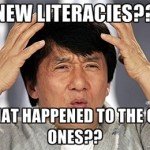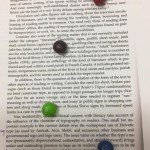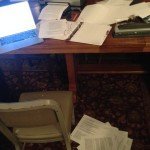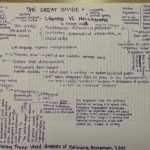Power and Stratification
The area of literacy studies already seems so contested and polluted with ideological ideas it makes it a difficult subject to jump into to. Further, those ideological strains often pull heavily on sensitive cultural strings, especially within U.S. society, and playing with them risks reopening old wounds or toying with those still bleeding. However, there may be a necessity to reexamine how we as a society value individual literacies; the status quo has done little more than stratify sectors into cultural/social groupings, whether forced from outside or as an in-group decision, deliberate or not.
Literacy undoubtedly is intertwined with some kind of power; yet, the source is uncertain. Is it innate? Or do we simply ascribe it value? Some have claimed it is an entity in its own right. If that is the case, literacy itself would be the possessor of that power bestowing it onto others, which it obviously cannot do alone as an intangible object. With no will of its own, that power must transfer to or have begun with the wielder – a literate person. This concept gave rise to the ideology that literate people are somehow “better.” An old idea and one I find repugnant, but it does raise the question: Can a person with a particular literacy perform acts that a person without that literacy cannot? Without that literacy, is there no other way?
Moreover, I think one’s literacies, like relics on a shelf, illustrate their social and educational background, factual or assumed. In other words, one’s real or interpreted literacy “sponsors” are outed. Therefore, assumptions are also likely made of the person’s character and promise in a similar fashion as one’s clothes, hair, or choice of tattoos. This returns to the point made earlier regarding the stratification of society. It would seem that there is a naturally occurring impediment built into advanced society structures, which some claim are results of literacy, blocking those without particular literacies from entry where they are used.




